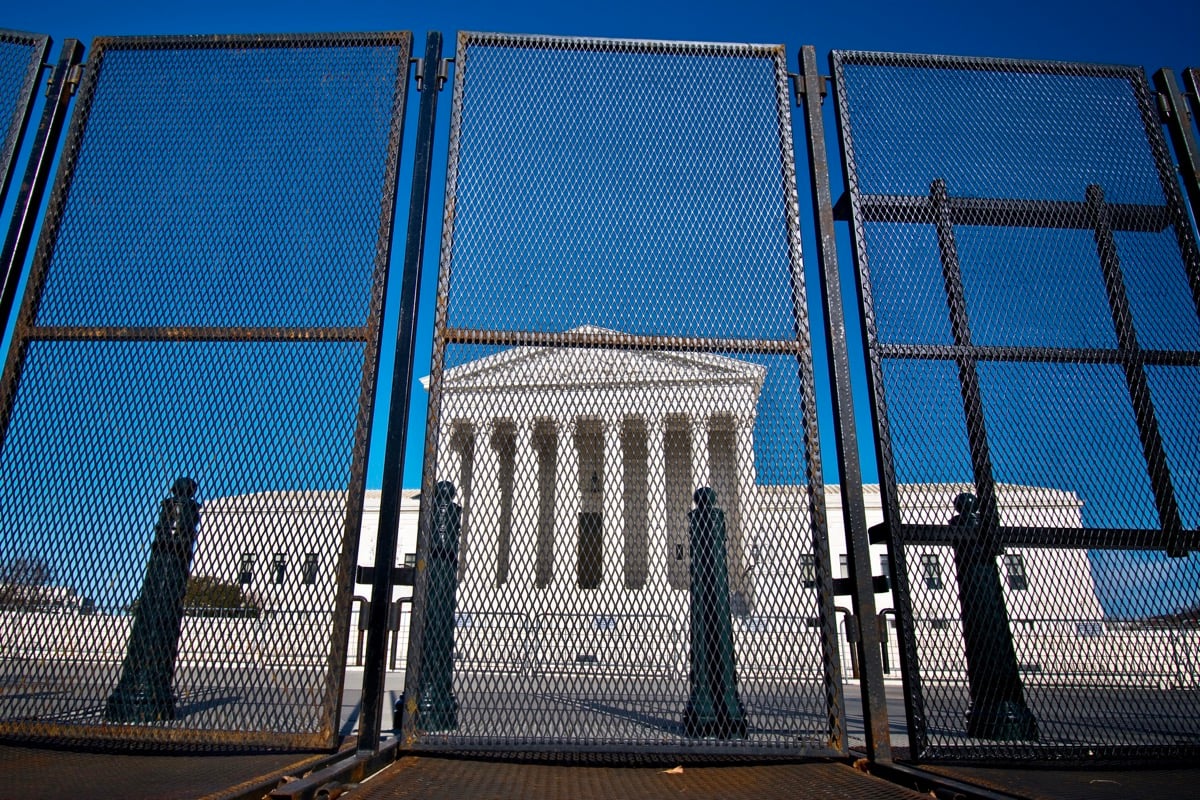In case you needed a reminder that the whole of the U.S. government is an imperfect instrument, the future of the internet (you know, what you’re using right now to read this article) is going to be decided by 9 people who don’t seem to fully understand exactly how the internet works. Spoiler alert: it’s not just a series of tubes, it turns out!
To catch you up. The Supreme court, the institution that decided I don’t deserve to have autonomy over my body anymore, heard arguments in a pair of cases this week. These cases revolve around the legal liability websites and internet users have in the content that they promote.
A confused court
Per the HuffPost:
Both cases before the court this week concern website operators’ liability for terrorist acts. The first case of the two, Gonzalez v. Google, asks whether [Communications Decency Act] Section 230 covers YouTube’s recommendation algorithm, which the family of Nohemi Gonzalez claims indirectly led to her death in the Islamic State group-linked terrorist attack in Paris in 2015. The second, Twitter v. Taamneh, concerns the Anti-Terrorism Act and whether websites can be considered to have aided and abetted in the death of Nawras Alassaf during a 2017 attack by the group, also known as ISIS, in Istanbul.
The arguments were heard on Tuesday, and friends? It didn’t go that great. By at least one Justice’s own admission, too. Per the above article:
After several Supreme Court justices acknowledged Tuesday that they were “confused” by the arguments on display and the law they were being asked to interpret, one of them laid her cards out on the table.
“We’re a court. We really don’t know about these things,” Justice Elena Kagan said. “You know, these are not like the nine greatest experts on the internet.”
This is a breathtaking example of the Dunning–Kruger effect in full display here. 9 people who, by their own admission, have no idea what they’re actually hearing are going to decide whether or not the internet will ever be the same again. Awesome. That’s just America in a nutshell. An empowered-feeling minority making decisions without stopping to question whether or not they’re qualified to do so. Decision that will affect the rest of us indefinitely. Awesome!
The internet liability cases, explained
There are two things at stake here. The first is a little more straightforward, and that’s the Twitter case. It assesses what a website’s liability under anti-terrorism laws is. The second will be determined by the Google case, and it will be the liability (if any) an algorithm has for the content it promotes. Up until now, website operators have been protected from liability and litigation via Section 230. This case could change that. Per Huffpost:
Section 230 primarily protects website operators from liability for content that users post, such as potentially defamatory or libelous Twitter posts. The confusion inherent in Gonzalez v. Google, in general, lies with questions over recommendation algorithms. Do the law’s protections apply if YouTube’s “up next” algorithm points users toward terrorist recruitment activity? Does it matter that YouTube didn’t single out terrorist propaganda to promote with its algorithm, but rather generally recommends everything to everyone according to their interests? (According to Google’s lawyer, the site would be protected either way.)
If it turns out algorithms do matter, a lot of the sites we use every day will have to scramble quickly to figure out how to retool their entire operation. Additionally, the impact of these case decisions will have a broader implication for legal liability for you and me. Per Yahoo! News:
Ben Berkowitz, a partner at the law firm Keker, Van Nest & Peters, who helped file an amicus brief on behalf of Google in the Gonzalez case, said the justices were right to worry about expanding litigation against platforms that neutrally host and recommend internet content.
“This is an issue that impacts not only the platforms, but all internet content creators and users. In other words, all of us,” Berkowitz said. “After this week’s arguments, we remain cautiously optimistic that the Supreme Court will take these concerns seriously.”
Basically, these two cases are a massive can of worms. If you use the internet (and gotcha! you’re reading this, so you do), the decision the Supreme Court makes here will impact you. It should worry you they don’t really understand the nuances. Hell, they admit they barely understand the broad strokes. Good thing they’re here to make our day a little worse in the process.
Per Yahoo!News, the court is expected to hand down rulings in both cases in July. So, you know, enjoy the videos YouTube is suggesting for you now.
(Featured image: Douglas Rissing)










Published: Feb 25, 2023 11:45 am